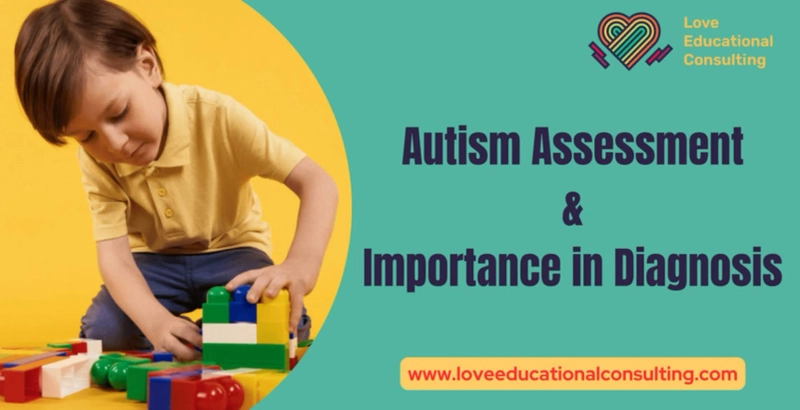Autism Spectrum Disorder (ASD) is a complex neurodevelopmental condition that affects communication, social interaction, and behavior. Early diagnosis and intervention are crucial for individuals with ASD to lead fulfilling lives. In this comprehensive article, we will delve into the different types of autism assessments and highlight their significance in accurately diagnosing and understanding the needs of individuals on the spectrum.
Different Types of Autism Assessments:
1. Developmental Screening:
Developmental screening is the initial step in identifying potential signs of autism in children. Conducted during regular health check-ups, it involves a brief assessment to determine if further evaluation is necessary. Typically, pediatricians and healthcare professionals use standardized tools like the Modified Checklist for Autism in Toddlers (M-CHAT) to assess a child's communication, social, and motor skills. Early detection through developmental screening can lead to timely interventions, greatly improving long-term outcomes.
2. Diagnostic Evaluation:
A diagnostic evaluation is a comprehensive assessment carried out by a multidisciplinary team of specialists. It involves in-depth evaluations of the child's behavior, communication, and cognitive abilities. Additionally, medical history, parental observations, and input from teachers may be considered to make an accurate diagnosis. The Autism Diagnostic Observation Schedule (ADOS) and the Autism Diagnostic Interview-Revised (ADI-R) are commonly used tools in this evaluation. A formal diagnosis helps individuals and their families access appropriate support services and interventions tailored to their specific needs.
3. Intellectual and Cognitive Assessment:
Autism often coexists with intellectual disabilities or differences in cognitive functioning. Intellectual and cognitive assessments, such as intelligence quotient (IQ) tests, are crucial to understand an individual's cognitive strengths and challenges. These assessments aid in tailoring educational strategies and determining the most suitable learning environment for the person with ASD.
4. Speech and Language Assessment:
Communication difficulties are a hallmark of autism. Speech and language assessments focus on evaluating a person's expressive and receptive language skills. Speech-language pathologists use various tests to assess language comprehension, articulation, and pragmatic language use. The results help design personalized communication therapies that address the individual's specific communication needs.
5. Occupational and Sensory Assessments:
Many individuals with autism experience sensory processing issues and difficulties with daily living skills. Occupational therapists conduct sensory assessments to identify sensory sensitivities and challenges in processing sensory information. These evaluations inform the development of sensory integration therapies and strategies that enhance the individual's ability to engage in daily activities effectively.
Conclusion:
Understanding the different types of autism assessments and their uses is vital for early diagnosis and tailored interventions for individuals on the autism spectrum. Developmental screening lays the foundation for further evaluation, while comprehensive diagnostic assessments provide a formal diagnosis and access to support services. Intellectual, speech, and sensory assessments further refine the understanding of an individual's unique strengths and challenges, guiding the implementation of appropriate interventions to enhance their quality of life. By utilizing a combination of these assessments, we can better support individuals with autism in achieving their full potential and participating meaningfully in society. If you suspect that your child or a loved one may be exhibiting signs of autism, do not hesitate to seek professional evaluation and support to embark on a journey of understanding and growth.


